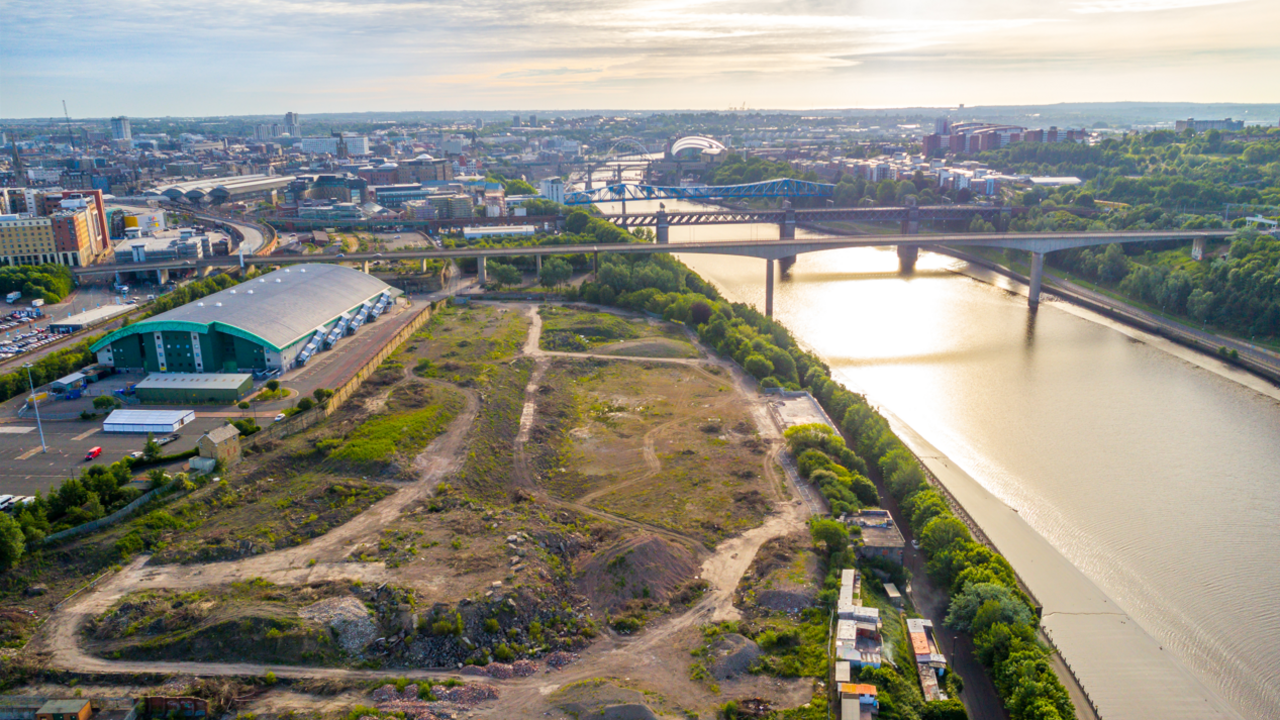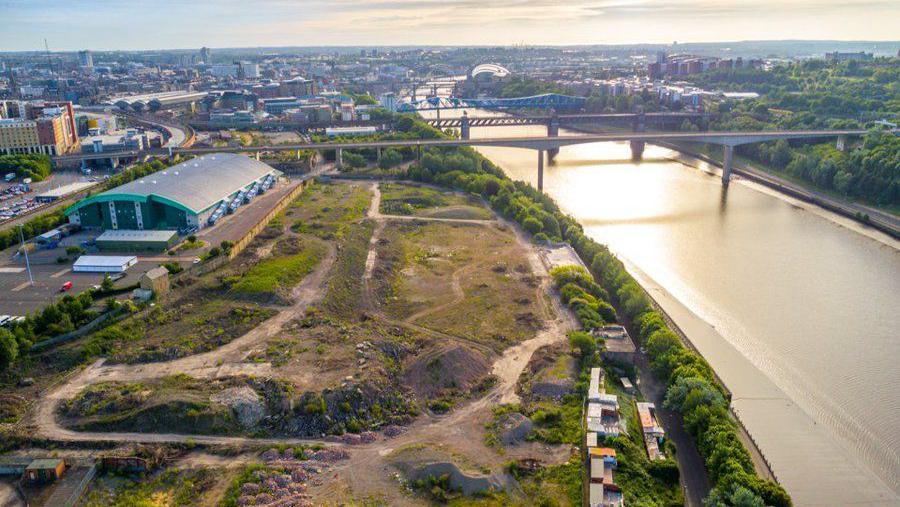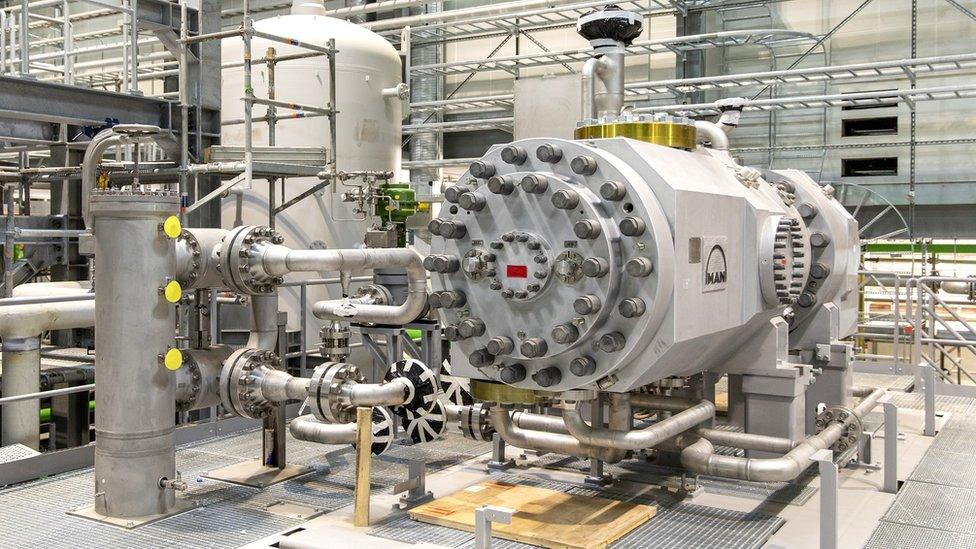New homes could be heated by River Tyne, council told

The project designs could be ready by the end of 2025, the council's climate change committee heard
- Published
The River Tyne could be used to provide heat to a major Newcastle development.
City leaders are exploring plans that would see water from the river used to heat new homes and businesses earmarked for the Forth Yards site.
The council's climate change committee heard how the Tyne could play a critical role in delivering a low-carbon district heating network to an area crucial to the city's future growth.
Council energy specialist Adam Karimian said such schemes take a “long time” to develop, but he hoped the designs could be ready by the end of 2025.
The proposals could see water taken from the river and heat energy extracted from it, before the water is then returned to the river, to deliver heating and hot water to nearby buildings.
Such a scheme has already been installed in Jarrow, which has been hailed as a “groundbreaking” venture that could cut carbon emissions by more than 1,000 tonnes every year.
Meanwhile, a similar project in Gateshead uses heat from water pumped up from flooded coal seams to deliver hot water to 350 council houses, offices, Gateshead College and the Baltic.
It was recently announced that Homes England had struck a deal to build 1,100 homes on the Quayside West site next to the Utilita Arena, after its previous developers went into administration.
'Strict limits'
Councillors heard while a heat network using the Tyne would be expensive to install, it could prove more cost-effective in the long-run than using air source heat pumps.
The Forth Yards area to the west of the city centre behind Central Station is one of several locations identified as areas for district heat networks, where buildings are connected up to the same heat source.
Others include the area around the Royal Victoria Infirmary and Newcastle University, the Local Democracy Reporting Service said.
The council would have to comply with “strict limits” set by the Environment Agency if the Tyne was used, the committee heard, external, meaning only three degrees of heat could be taken out of the water before it is pumped back into the river.
Using water pumped up from old mineworks is another option being looked at for parts of the city further away from the riverside.
He added: “The Coal Authority loves Newcastle, they keep emailing me about it. The technology has been proven across the river – it is the same seams and the same workings [here]. [But] each project is evaluated separately."
Follow BBC Newcastle on X (formerly Twitter), external, Facebook, external and Instagram, external. Send your story ideas to northeastandcumbria@bbc.co.uk
Related topics
- Published15 February 2024

- Published30 May 2023
